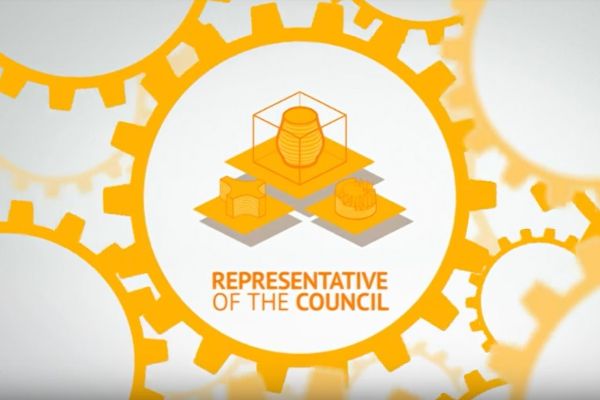Council of the European Union and the Council presidency
Council of the European Union
The Council of the European Union is the institution that represents the member states' governments. Also known informally as the EU Council or the Council of Ministers, it is where national ministers from each EU country meet to adopt laws and coordinate policies.
The tasks of the Council of the European Union
The Council of the European Union negotiates and adopts legislative acts in most cases together with the European Parliament through the ordinary legislative procedure, also known as 'codecision'. The Council is also responsible for coordinating member states' policies in numerous areas. In addition, the Council defines and implements EU foreign and security policy on the basis of guidelines set by the European Council. The Council also provides the mandate to the European Commission to negotiate on behalf of the EU agreements between the EU and non-EU countries and international organisations. Furthermore, the Council adopts the EU budget together with the Parliament.
Council configurations
The Council meets in 10 different configurations that encompass all of the EU’s policy areas – from ‘economic and financial affairs’ to ‘agriculture and fisheries’ and ‘environment’. Council meetings are held in Brussels or Luxembourg and each of the 28 EU member states sends their minister or state secretary responsible for that policy area. They have the right to commit the government of their country and cast its vote. The Council takes its decisions by a simple majority, qualified majority or unanimous vote, depending on the decision that needs to be taken.

The Council presidency
The presidency of the Council (also called the Council presidency) rotates every 6 months in a set sequence among the 28 EU member states. During this 6-month period, the presidency chairs meetings at every level in the Council, helping to ensure the continuity of the EU's work in the Council.

The tasks of the Council presidency
The Council presidency has a wide range of challenging tasks. The presidency is responsible for driving forward the Council's work on EU legislation, ensuring the continuity of the EU agenda, orderly legislative processes and cooperation among member states. To do this, the presidency must act as an honest and neutral Broker.
- Planning and chairing meetings in the Council and its preparatory bodies:
The presidency chairs meetings of the different Council configurations (with the exception of the Foreign Affairs Council) and the Council's preparatory bodies, which include permanent committees such as the Permanent Representatives Committee (Coreper), and working parties and committees dealing with very specific subjects. The presidency ensures that discussions are conducted properly and that the Council's rules of procedure and working methods are correctly applied. It also organises various formal and informal meetings in Brussels and in the country of the rotating presidency.
-
Representing the Council in relations with the other EU institutions:
The presidency represents the Council in relations with the other EU institutions, particularly with the Commission and the European Parliament. Its role is to try and reach agreement on legislative files through trilogues, informal negotiation meetings and Conciliation Committee meetings.
The presidency works in close coordination with the President of the European Council and the High Representative of the Union for Foreign Affairs and Security Policy.
The ‘Trio Presidency’
To ensure the continuity of the EU's work in the Council, successive presidencies work together in groups of three, called ‘trios’ or the ‘Trio Presidency’. The trio adopts a common programme determining the priorities and objectives that will be addressed by the Council over the 18‑month period covered by their presidencies.
The current trio is made up of the presidencies of Austria and its predecessors Estonia (in the second half of 2017) and Bulgaria (in the first half of 2018). There is a joint programme for the entire 18‑month period of the current ‘Trio Presidency’.
More information on the Council of the European Union can be found at:
http://www.consilium.europa.eu/en/council-eu/
More information on the presidency of the Council of the European Union can be found at:
http://www.consilium.europa.eu/en/council-eu/presidency-council-eu/